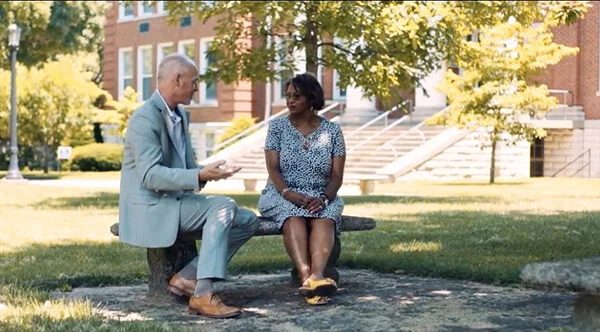[vc_row][vc_column][vc_column_text css=””]What is a guardianship?
A guardianship is usually defined as a protective legal proceeding for someone who is incapacitated and unable to manage his/her own affairs. Incapacitated means that the elder is no longer able to receive and evaluate information and communicate decisions. This usually applies to the ability to make financial decisions or care-related decisions.
When is a guardianship necessary?
A guardianship is necessary when the person is incapacitated and no one else has access to the finances, or if the elderly person refuses to receive appropriate care. Being vulnerable to exploitation can be another reason a guardianship for an elder may be warranted. These situations accompanied by a lack of legal documents governing such situations mean that a guardianship is necessary. Guardianships can be long and complex, but they can also be avoided.
How to avoid a guardianship?
There are several actions that can be taken to avoid the need for a guardianship. A visit to an elder law attorney can be an excellent way to set in motion a plan for if or when you or an elderly loved one becomes incapacitated.
- Durable Financial Power of Attorney – By having a financial power of attorney in place, the stress and expense of a guardianship can be avoided. This also gives the elderly person the final say in who will make decisions relating to finances. A durable financial power of attorney names an agent who has the power to act in the place of the senior adult financial matters. Being a durable financial power of attorney allows this power of attorney to stay in effect if the senior adult becomes unable to handle his/her own financial affairs.
- Healthcare Power of Attorney – A durable healthcare power of attorney is a document that grants authority to an agent to make healthcare decisions for the person signing the document. Healthcare decisions can include decisions related to facility placement, admittance to a hospital, or choosing and hiring healthcare aides.
- Trusts – Trusts can have a triggering mechanism, such as a doctor’s determination of incapacity, for a trustmaker who is serving as trustee for their own trust. If the trustee is determined to be incapacitated, the successor trustee can then assume control of the assets to make sure they are protected.
- Living Will – A living will details a senior’s wishes for end of life medical care. It can include what medical treatments the senior would or would not like to have in specific situations. This is used in conjunction with the durable healthcare power of attorney to allow for the wishes of an incapacitated person to be executed.
- Conservatorship – In some states, a person can voluntarily choose to have someone else manage their affairs, but they may have to prove that they are unable to manage for themselves. A standby guardian is another option in some states in case the person loses the ability to care for himself/herself.
A guardianship can be costly, long, and difficult. This can mean that an incapacitated person is unable to receive the help they require. In fact, this process may even mean that the elderly person is in position of danger or vulnerability until the guardianship can be obtained. An elder law attorney can walk you through all of the necessary legal provisions, provide explanation, and prepare the paperwork to avoid a guardianship. Consulting and planning with an elder law attorney will help to ensure that all options are explored and the best possible solution is utilized to make the task easier. Elder law attorneys will help take the guesswork out of planning for future care.
Steps Involved in Establishing Guardianship
Establishing guardianship involves several key steps. First, a petition must be filed in the appropriate court, detailing the reasons why guardianship is necessary. This is followed by a court hearing where evidence of the individual’s incapacity is presented.
If the court determines that guardianship is warranted, it will appoint a guardian. The guardian is then responsible for submitting regular reports to the court about the ward’s well-being and financial status. This legal process ensures that the individual’s rights are protected while providing needed care and management of their affairs.
A guardianship can be costly, long, and difficult. This means that an incapacitated person is often unable to receive the medical care they require promptly, which may place the elderly person in a position of danger or vulnerability until guardianship can be obtained. In fact, without prompt court intervention, the process might delay necessary decisions about health care, finances, and personal life, risking the well-being of the adult in need.
An elder law attorney can walk you through all of the necessary legal provisions, such as establishing a power of attorney or creating advance directives like health care proxies and living wills. These documents allow a trusted family member or appointed agent to make critical decisions regarding health, finances, and personal matters on behalf of the incapacitated individual, thus avoiding the need for adult guardianship. Consulting and planning with an elder law attorney will help ensure that all options are explored and the best possible solution is utilized to make the task easier.
Elder law attorneys will help take the guesswork out of planning for future care by discussing alternatives to guardianship. These alternatives often include setting up an estate plan that encompasses powers of attorney for both health care and financial matters, appointing a guardian ad litem in complex situations, or ensuring proper management of the incapacitated person’s estate. This planning is crucial, especially when family members need to manage assets, handle taxes, or control property decisions without court-appointed guardianship.
By appointing a health care proxy, families can avoid court-appointed guardianship, allowing personal decisions about medical treatment and care to reflect the true wishes of the incapacitated. Similarly, estate planning tools like trusts can protect assets and manage an individual’s finances effectively, ensuring their estate is handled according to their wishes, potentially reducing costs and taxes following incapacity or death.
These legal tools not only serve to protect the ward’s health and financial interests but also provide a support system through a trusted individual who manages their affairs under the principles of least restriction, preserving the adult’s right to make their own decisions as much as possible. Each of these measures serves to uphold the dignity and autonomy of the individual, offering a robust defense against the vulnerabilities that come with age and illness.
Moreover, elder law attorneys can help families navigate the complexities of the legal system, from filing the initial petition for guardianship when necessary to representing adults in court proceedings about capacity and guardianship issues. These professionals play an essential role in ensuring that the process is handled with care, respect, and legal diligence, safeguarding the interests of those they represent.
If you have any questions, please feel free to contact us at 859-544-6012.[/vc_column_text][/vc_column][/vc_row]


